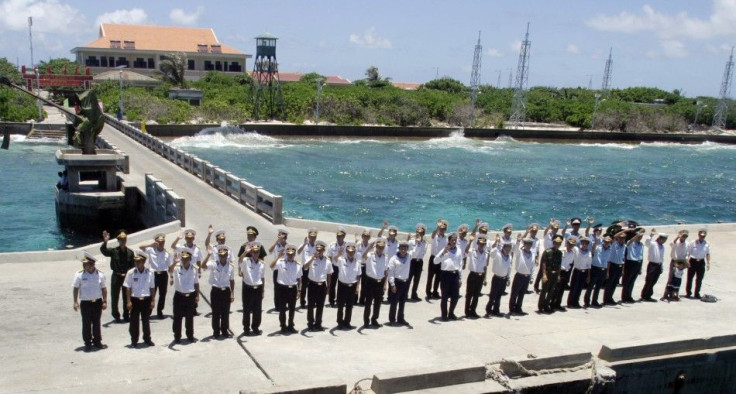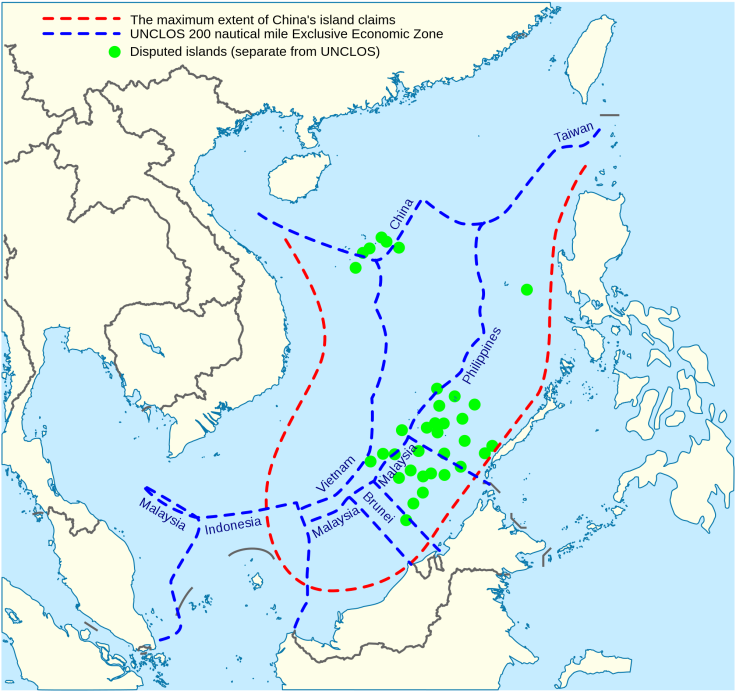South China Sea Tourism? Vietnam Sending Tourist Cruises To Disputed Spratly Islands

Amid territorial disputes and rising geopolitical tension in the region, the presence of military ships and aircraft in the South China Sea is not really surprising. Soon, however, Vietnam will join China in adding civilian cruise ships into the mix.
Vietnam is offering civilian cruises for particularly patriotic citizens who want to visit some of the region's most disputed areas. According to the Ho Chi Minh City government website, a limited-time promotion will let 180 Vietnamese take a six-day tour of two reefs in the disputed Spratly Islands, known to Vietnamese as Truong Sa, and partake in activities like fishing, visiting a lighthouse and eating local seafood.

Maritime claims in the disputed South China Sea have become deeply personal for some. For many, including Vietnamese, navigating the waters also claimed by China, the Philippines, Brunei and Malaysia is a source of national pride.
“Traveling to Truong Sa ... means the big trip of your life, reviving national pride and citizens' awareness of the sacred maritime sovereignty of the country,” a promotion for the trip said, according to Reuters. “Tourists will no longer feel Truong Sa as far away. The blue Truong Sa ocean will be deep in people’s hearts.
“See 300 species of coral creating wonderful reefs in sparkling colors, in ravishing, fantastic beauty,” the brochure says without suggesting the political implications of such a vacation. “Watch the sunrise over the ocean and say goodbye to the sunset in the evening amid the immense sky and sea.”
The move is likely to magnify the strain on relations with China. Though other countries lay claim to parts of the Spratly archipelago, China lays claim to the entire cluster of islands and reefs in addition to about 90 percent of the South China Sea. Last May, the dispute prompted anti-China protests in various parts of Vietnam after disputes between Chinese expats living in Vietnam and locals became violent. Disputes were reportedly rooted in reactions to Beijing’s decision to erect an oil rig within Vietnam’s exclusive economic zone, delineated by the United Nations Convention on the Law of the Sea (UNCLOS), which China does not obey. China instead uses its self-prescribed Nine-Dash Line as demarcation of its sovereignty in the South China Sea. Anti-Chinese sentiment continued to bubble, driving out a significant number of expats and Chinese businesses.
While Vietnam’s actions may be seen as inflammatory, the country is not alone in offering a controversial tourist service in the area. In 2013, China introduced tourist cruises bound for the disputed Paracel Islands in the South China Sea. Similarly, the four-day trip offered Chinese citizens a chance to see different smaller islands and reefs in the disputed waters.
© Copyright IBTimes 2024. All rights reserved.












